Obsessive-Compulsive Disorder (OCD) affects millions of adults, creating a cycle of intrusive thoughts and repetitive b
ehaviors that can feel impossible to break. When persistent worries about contamination lead to hours of handwashing, or when checking locks repeatedly prevents you from leaving home on time, OCD transforms everyday activities into exhausting battles. The condition doesn’t simply cause minor inconveniences—it can profoundly disrupt relationships, career advancement, and personal well-being.
The encouraging reality is that effective OCD treatment exists, and early intervention makes a significant difference in recovery outcomes. Research consistently shows that individuals who begin evidence-based treatment sooner experience faster symptom reduction and develop stronger coping strategies. Waiting often allows OCD symptoms to strengthen and expand into new areas of life, making treatment more complex.
This guide breaks down the path to recovery into three manageable steps, removing the overwhelming complexity that often prevents people from seeking help. Whether you’re experiencing your first OCD symptoms or have been struggling for years, these steps provide a clear roadmap toward evidence-based care.
Getting started with OCD treatment doesn’t have to feel daunting. With the right information and professional support, you can begin your journey toward reclaiming control over your thoughts and daily life.
Understanding OCD and Its Symptoms
OCD is a chronic mental health condition characterized by persistent, intrusive thoughts (obsessions) and repetitive behaviors (compulsions) performed to alleviate distress. These symptoms create a cycle that can significantly interfere with work, relationships, and personal well-being.
Defining Obsessions and Compulsions
Obsessions are unwanted, distressing thoughts, images, or urges that repeatedly enter your mind. Compulsions are repetitive behaviors or mental acts performed to reduce the anxiety caused by obsessions.
Common OCD Symptoms in Adults
- Fear of contamination – Leading to excessive cleaning, handwashing, or avoiding public spaces
- Intrusive thoughts about harm or danger – Resulting in compulsive checking of locks, appliances, or repeatedly asking “what if” questions
- Need for symmetry or exactness – Causing repetitive arranging, counting, or redoing tasks until they feel “just right”
- Unwanted aggressive, sexual, or taboo thoughts – Creating intense distress despite being completely contrary to your values
- Excessive reassurance-seeking – Constantly asking others for confirmation or avoiding situations entirely
Symptom Onset in Adults
While OCD often begins in childhood or adolescence, many adults experience their first symptoms in their twenties or thirties. Adult-onset OCD may emerge following significant life stressors, hormonal changes, or major transitions. Recognizing these patterns early enables prompt access to effective OCD treatment, preventing symptoms from becoming deeply entrenched and improving long-term outcomes.
You’ve already taken a courageous step by seeking out this information. Let the compassionate specialists at Arya Therapy Center guide you the rest of the way.

Step 1: Seek a Comprehensive Assessment and Diagnosis
The foundation of effective ocd treatment begins with obtaining an accurate diagnosis from a qualified mental health professional who specializes in obsessive-compulsive disorders. Many adults struggle with OCD symptoms for years before receiving proper evaluation, often because their experiences are misunderstood or misdiagnosed.
A clinician experienced in OCD will use standardized assessment tools that follow International OCD Foundation (IOCDF) guidelines. These evidence-based tools include:
- Yale-Brown Obsessive Compulsive Scale (Y-BOCS) – measures symptom severity and functional impairment
- Dimensional Obsessive-Compulsive Scale (DOCS) – assesses specific symptom dimensions
- Structured clinical interviews designed to capture the full spectrum of OCD presentations
The diagnostic process involves distinguishing OCD from conditions that may appear similar but require different treatment approaches. Skilled clinicians differentiate between:
- Generalized Anxiety Disorder – where worry lacks the ritualistic component of compulsions
- Body Dysmorphic Disorder – focused specifically on perceived physical flaws
- Autism Spectrum Disorders – where repetitive behaviors serve different functions
- Tic disorders – involving involuntary movements rather than anxiety-driven rituals
This careful diagnostic work ensures that your treatment plan addresses the specific mechanisms driving your symptoms, setting the stage for the most effective therapeutic interventions tailored to your unique presentation of OCD.
Step 2: Begin First-Line Evidence-Based Treatment
Once you’ve received an accurate diagnosis, the next crucial step involves implementing evidence-based ocd treatment approaches that have demonstrated consistent success across diverse populations.
Exposure and Response Prevention (ERP): The Gold Standard
Exposure and Response Prevention (ERP) stands as the most effective therapeutic intervention for OCD across all age groups. This specialized form of cognitive-behavioral therapy operates on a straightforward yet powerful principle: gradual, systematic exposure to anxiety-provoking thoughts or situations while simultaneously preventing the accompanying compulsive behaviors.
During ERP sessions, you’ll work collaboratively with your therapist to:
- Create a hierarchy of feared situations, starting with less distressing scenarios
- Practice staying present with uncomfortable feelings without engaging in compulsions
- Build tolerance for uncertainty and anxiety through repeated exposures
- Develop confidence in your ability to manage distressing thoughts independently
Cognitive Behavioral Therapy’s Supporting Role
CBT techniques complement ERP by addressing the underlying thought patterns that fuel OCD symptoms. This approach helps you recognize cognitive distortions, challenge catastrophic thinking, and develop healthier responses to intrusive thoughts.
Medication Considerations
Serotonin Reuptake Inhibitors (SRIs) often enhance therapeutic outcomes when combined with ERP. These medications typically require higher doses than those used for depression and may take 8-12 weeks to demonstrate full effectiveness. Common considerations include potential side effects like nausea, sleep changes, or sexual dysfunction, which your psychiatrist will monitor closely throughout treatment.
Step 3: Explore Adjunctive or Advanced Treatment Options if Needed
When standard ERP and CBT approaches don’t yield sufficient improvement, specialized ocd treatment alternatives can provide additional pathways to recovery. These advanced interventions become particularly valuable for individuals experiencing treatment-resistant symptoms or those who cannot fully engage with traditional exposure-based approaches.
Second-Line Behavioral Interventions
Inference-Based Cognitive Behavioral Therapy (I-CBT) targets the reasoning processes underlying OCD doubts, helping individuals recognize and challenge the faulty inferences that fuel obsessive thinking. This approach proves especially beneficial for those who struggle with the exposure component of traditional ERP.
SPACE (Supportive Parenting for Anxious Childhood Emotions) focuses on modifying family accommodation patterns that inadvertently maintain OCD symptoms, particularly effective when direct child engagement proves challenging.
Third-Line Medical Interventions
For severe, treatment-resistant cases, neurostimulation techniques offer hope:
- Transcranial Magnetic Stimulation (TMS) uses targeted magnetic pulses to modulate brain activity in regions associated with OCD
- Deep Brain Stimulation (DBS) involves surgical implantation of electrodes for the most severe cases
Emerging Research-Based Treatments
Each advanced treatment option requires careful evaluation of individual circumstances, symptom severity, and previous treatment responses to determine the most appropriate therapeutic pathway.
Knowing the first step makes the entire journey feel more manageable. Contact Arya Therapy Center today for a confidential consultation to begin your path to healing.
Building a Personalized OCD Treatment Plan
Effective OCD treatment requires a comprehensive approach tailored to each individual’s unique presentation, severity, and life circumstances. Your treatment plan should integrate multiple therapeutic elements working together to address all aspects of your OCD experience.
Core components of personalized care include:
- Psychotherapy foundation: ERP and CBT form the therapeutic backbone
- Medication support: SRIs or other medications when clinically indicated
- Lifestyle modifications: Sleep hygiene, stress management, and exercise routines
- Support system activation: Family involvement, peer connections, and community resources
Your clinician will assess factors like symptom severity, treatment history, co-occurring conditions, and personal preferences to create this individualized framework. The plan remains flexible, allowing adjustments based on your progress and changing needs throughout recovery.
Supporting Recovery Beyond Therapy

Successful OCD treatment goes beyond just therapy sessions. It requires a long-term commitment to learning and connecting with the community. By understanding the neurobiological basis of OCD, individuals can learn to see intrusive thoughts as symptoms rather than personal failures, which helps reduce self-blame and shame that often keep the disorder going.
Educational Resources
Educational resources empower both patients and families to:
- Recognize early warning signs of symptom escalation
- Understand accommodation behaviors that inadvertently reinforce OCD
- Develop realistic expectations about recovery timelines
Support Networks
Support networks provide invaluable reinforcement for treatment gains. The International OCD Foundation offers local support groups where individuals share experiences and coping strategies. Online communities create connections for those unable to attend in-person meetings, while family support groups educate loved ones about avoiding accommodation patterns that maintain OCD symptoms.
Getting Help with Arya Therapy Center
Taking the first step toward OCD treatment requires finding clinicians who truly understand the complexities of this condition. Early intervention with qualified professionals experienced in evidence-based therapies can dramatically improve your treatment outcomes and quality of life.
At Arya Therapy Center in Newton, MA, we offer comprehensive, evidence-based treatments tailored to each individual’s unique needs:
- Cognitive Behavioral Therapy (CBT): Helps identify and challenge obsessive thoughts while developing healthier coping strategies
- Exposure and Response Prevention (ERP): Our specialized approach gradually exposes you to feared situations while preventing compulsive behaviors
- Medication Management: When appropriate, our psychiatrists may prescribe SSRIs or other medications to support symptom relief
- Motivational Interviewing: A client-centered approach that enhances your commitment to behavioral change
- Support Groups: Structured environments where you can share experiences and develop effective coping skills
Our experienced clinicians provide compassionate, discreet care specifically designed for high-achieving adults and families facing OCD challenges. We integrate proven modalities like CBT, DBT, and ERP to create personalized treatment plans that honor your individual circumstances and goals.
Ready to regain control over your thoughts and behaviors? Contact Arya Therapy Center today for specialized, evidence-based OCD treatment in a supportive, understanding environment.
FAQs (Frequently Asked Questions)
What is Obsessive Compulsive Disorder (OCD) and how does it affect daily life?
OCD is a chronic mental health condition characterized by persistent, intrusive thoughts (obsessions) and repetitive behaviors (compulsions) performed to alleviate distress. It can significantly impact daily life by causing excessive cleaning, checking, arranging, or intrusive thoughts that lead to distress and interfere with normal functioning.
How can I get an accurate diagnosis for OCD?
Seeking a comprehensive assessment from a clinician experienced in OCD is crucial for an accurate diagnosis. Professionals use standardized tools and interviews aligned with IOCDF guidelines to differentiate OCD from other anxiety or neuropsychiatric disorders, ensuring tailored treatment plans.
What are the first-line evidence-based treatments available for OCD?
Exposure and Response Prevention (ERP) is the gold-standard therapy for OCD across age groups. ERP involves gradual exposure to feared stimuli while preventing compulsive behaviors. Cognitive Behavioral Therapy (CBT) supports ERP by addressing cognitive patterns maintaining OCD. Medications such as selective serotonin reuptake inhibitors (SSRIs) may also be prescribed to complement therapy.
When should advanced or adjunctive treatments be considered for OCD?
If first-line treatments like ERP are insufficient or not feasible, second-line behavioral therapies such as Internet-based CBT (I-CBT) or SPACE for children may be explored. For severe or treatment-resistant cases, third-line interventions including Transcranial Magnetic Stimulation (TMS) and Deep Brain Stimulation (DBS) are options. Emerging experimental treatments like psychedelics and IV ketamine are currently under clinical research.
How can I build a personalized treatment plan for OCD?
An individualized care plan combining psychotherapy, medication, lifestyle changes, and support systems is essential. Tailoring treatment to each person’s unique needs enhances effectiveness and supports long-term recovery.
What specialized OCD treatments does Arya Therapy Center offer in Newton, MA?
Arya Therapy Center provides evidence-based treatments including Cognitive Behavioral Therapy (CBT), Exposure and Response Prevention (ERP), medication management with SSRIs when necessary, motivational interviewing to enhance commitment to change, and support groups. Their experienced clinicians offer compassionate care tailored for high-achieving adults and families facing OCD challenges.
